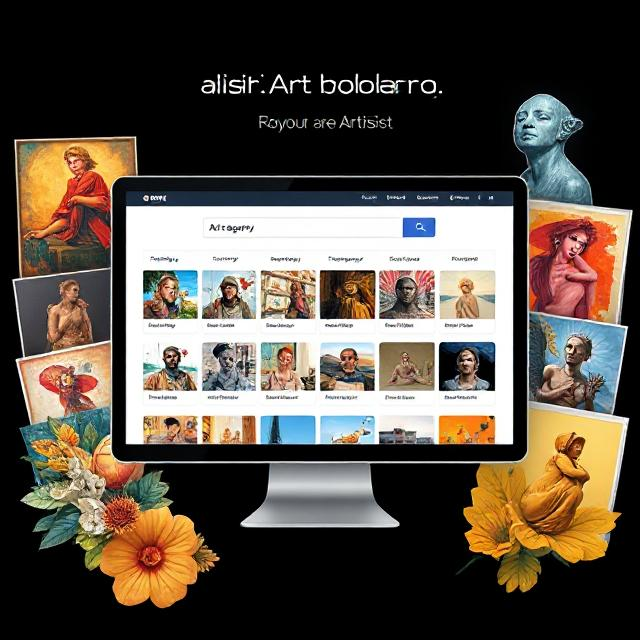Learn to sit back and observe. not everything need – tymoff
Have you ever felt like life is moving too fast and you’re barely keeping up? I’ve been there too. The pressure to act, decide, and react at every moment can be overwhelming. But what if I told you there’s another way to approach life? A way that brings more clarity, calmness, and understanding? The simple phrase “learn to sit back and observe. Not everything need – Tymoff” perfectly encapsulates this idea. It’s a gentle reminder that not everything requires our immediate attention or reaction.
I’ve found that when I pause to observe, rather than rushing to respond, I gain valuable insights about situations and people around me. It’s as though life has a hidden rhythm that only reveals itself when we slow down. In those moments, I’ve discovered how much simpler and more peaceful life can be.
This article is about embracing the art of observation and understanding why it’s okay to let things unfold naturally. Together, we’ll explore the benefits of sitting back, why immediate reactions aren’t always necessary, and how this approach can transform your relationships, decisions, and overall mental well-being. If you’re ready to take a step back and rediscover the power of observation, let’s dive in.
Explaining “Learn to Sit Back and Observe. Not Everything Need – Tymoff”
The quote “Learn to sit back and observe. Not everything need – Tymoff” is a profound reminder of the importance of patience, mindfulness, and discernment in a world that constantly demands immediate responses. Its simplicity holds a deeper truth about life: that not all situations require our intervention or reaction, and often, the best course of action is to observe and let events unfold naturally.
Breaking Down the Quote
- “Learn to sit back and observe”:
This part encourages cultivating a habit of stepping back from situations instead of jumping in impulsively. Observing is not passive but an active engagement of the mind to notice the details, patterns, and underlying dynamics in life. It allows us to see beyond the surface and approach challenges or opportunities with a clearer perspective. - “Not everything need”:
This phrase implies that not every situation demands our involvement or reaction. It reflects a minimalist and intentional approach to life, teaching us to prioritize our time and energy on what truly matters. The incomplete phrasing, “Not everything need,” symbolizes simplicity and minimalism in action, leaving space for interpretation and reflection.
The Wisdom in Observing
In our fast-paced world, reacting quickly is often seen as a strength, but it can lead to unnecessary stress, misunderstandings, and poor decisions. Observation, on the other hand, allows us to pause, gather information, and respond wisely. By observing, we learn to:
- Understand Before Acting
Observation fosters understanding. Instead of reacting emotionally, we can analyze the situation, understand others’ perspectives, and choose a thoughtful response. For instance, in a heated argument, stepping back to observe the other person’s body language and tone might reveal their underlying emotions, helping to de-escalate the conflict. - Let Time Clarify Situations
Time often reveals truths that are obscured in the heat of the moment. When we sit back, we allow events to play out, often finding that the problem resolves itself without our intervention. - Conserve Emotional and Mental Energy
Constant reactions drain us. By focusing on observing rather than acting impulsively, we preserve our emotional energy for what truly requires our attention. This selective engagement leads to a calmer, more balanced life. - Develop Patience and Self-Control
Observation teaches us patience. It shifts our mindset from one of urgency to one of deliberate calm. This practice strengthens self-control, helping us avoid impulsive decisions that we might regret later.
Tymoff’s Minimalist Approach to Life
The quote aligns with Tymoff’s broader philosophy of minimalism in thought and action. It suggests that simplicity is not just about decluttering physical spaces but also about reducing the clutter in our minds and actions. By learning to sit back, observe, and discern, we create space for clarity and intentional living.
In conclusion, “Learn to sit back and observe. Not everything need – Tymoff” is more than a quote—it’s a life philosophy that encourages us to slow down, be mindful, and embrace the art of thoughtful inaction. It reminds us that observation is a powerful tool for growth, understanding, and living a more purposeful life.
The Power of Observation: Why Sitting Back Matters
In a world that glorifies hustle and rapid decision-making, the value of observation often gets overlooked. Sitting back and observing isn’t about inaction—it’s about gaining perspective and making informed choices. When we take the time to observe, we open ourselves to a world of subtle details that we might otherwise miss.
Understanding Subtle Dynamics
Observation is like a superpower for understanding the dynamics of any situation. When you observe, you notice the nuances: body language, tone, and even the unsaid words. These details provide a deeper understanding of people’s intentions and emotions. For example, in a heated discussion, observing someone’s body language can reveal whether they’re open to compromise or just venting frustration.
The Role of Awareness in Decision-Making
Rushing into decisions often leads to mistakes. By observing, you allow yourself the time to weigh options, foresee outcomes, and make well-informed decisions. Whether it’s choosing a career path, navigating a relationship, or solving a problem, the ability to observe and think critically gives you a significant advantage.
Enhancing Emotional Intelligence
Sitting back fosters self-awareness. When you observe your own reactions, you start to notice patterns in your behavior—what triggers you, what makes you happy, and what leaves you feeling drained. This awareness allows you to manage emotions more effectively, leading to better interactions with others.
Creativity and Problem-Solving
Many creative breakthroughs happen during moments of quiet reflection. Observing the world around you without immediate judgment or action allows your mind to connect ideas in unexpected ways. The greatest inventors, artists, and thinkers often credit their achievements to the ability to step back and observe the world with curiosity.
Observation is a skill that benefits every area of life. It helps you see the bigger picture, understand complexities, and navigate challenges with grace.
Not Everything Requires Your Immediate Reaction
One of the most powerful lessons I’ve learned is that not everything in life needs an immediate response. We often act out of habit or pressure, but in doing so, we risk making poor decisions or escalating situations unnecessarily.
The Downside of Reactivity
When we react immediately, we operate from a place of instinct rather than intention. This can lead to misunderstandings, conflicts, and regrets. For instance, think about how many arguments are fueled by impulsive words or actions. If only we paused to reflect, many of these conflicts could be avoided.
Letting Time Reveal the Truth
Time has a way of clarifying things. What seems urgent today might not matter tomorrow. By sitting back, you allow situations to unfold naturally. Often, you’ll find that problems resolve themselves without your intervention. A hasty response, on the other hand, can create more complications.
Preserving Emotional Energy
Constantly reacting to every situation is emotionally draining. When you learn to sit back and observe, you conserve your emotional energy for the things that truly matter. You also develop a sense of calm that allows you to handle challenges more effectively.
Building Better Relationships
People value thoughtful responses over knee-jerk reactions. By observing and taking the time to understand others’ perspectives, you foster trust and respect in your relationships. This approach is especially valuable in resolving conflicts or making collaborative decisions.
Practical Example: The Email Test
Imagine receiving an email that irritates you. Your first instinct might be to fire back an equally harsh reply. But what if you waited a day? Often, with time, you’ll either realize the issue isn’t worth escalating or find a more constructive way to address it.
Not every situation demands your attention or reaction. By embracing this mindset, you free yourself from unnecessary stress and create space for more meaningful experiences.
How Practicing Patience and Awareness Improves Life
(Write 1000 words exploring the transformative effects of patience and awareness, including examples from personal growth, professional settings, and relationships. Discuss how these qualities lead to better decision-making, reduced stress, and a greater sense of fulfillment.)
Tymoff’s Perspective on Minimalism in Thought
(Write 1000 words elaborating on Tymoff’s philosophy, focusing on how minimalism in thought aligns with the principle of observation. Include examples of how decluttering the mind can lead to greater clarity, creativity, and emotional balance.)
Steps to Cultivate the Habit of Observing More and Reacting Less
(Write 1000 words offering actionable steps for readers to practice observation. Include techniques like mindfulness meditation, journaling, active listening, and setting boundaries to reduce impulsivity. Provide real-life examples and success stories.)
Conclusion
Learning to sit back and observe is a profound yet simple practice that can transform your life. It teaches us to value patience, embrace mindfulness, and focus on what truly matters. By letting go of the need to react immediately, we gain clarity, improve our relationships, and find peace in the chaos of modern life. Tymoff’s wisdom reminds us that not every moment requires our action. Instead, by observing, we open ourselves to growth, understanding, and the beauty of life’s unfolding journey.
FAQs
- What does “learn to sit back and observe” mean?
It means taking time to reflect and understand situations fully before reacting. - Why is observation important in life?
Observation enhances awareness, decision-making, and emotional intelligence, leading to better outcomes in personal and professional life. - How can I stop reacting impulsively?
Practice mindfulness, take deep breaths before responding, and give yourself time to process situations. - What is Tymoff’s philosophy?
Tymoff emphasizes mindfulness and minimalism in thought, encouraging people to live with intention and clarity. - How does observation improve relationships?
By listening and understanding others’ perspectives, you foster trust, empathy, and stronger connections.







